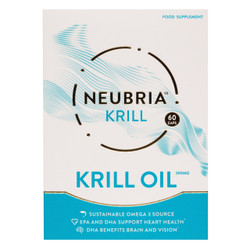
Coping With Premenstrual Syndrome
Premenstrual Syndrome (PMS) is a condition which occurs between 7 and 14 days before menstruation. The symptoms of Premenstrual Syndrome are thought to arise as a result of an imbalance in female hormones, mostly an excess of oestrogen in relation to progesterone. Typical Premenstrual Syndrome symptoms include headaches, tender breasts, bloating, abdominal cramping, irritability and often a lack of energy. Whilst there is no cure for PMS, there are a number of natural remedies for Premenstrual Syndrome that are recommended to alleviate the symptoms and often the consumer is faced with having to take several supplements when this may not be necessary. I am going to outline a simple regimen which for the majority helps alleviate this concern.
Firstly, I would recommend the use of ChasteBerry by Swanson. This traditional herb, also known as Agnus Castus, acts on the pituitary gland to increase the secretion of luteinising hormone which leads to greater production of progesterone during the second half of the menstrual cycle. In this way, ChasteBerry supplement exerts a balancing effect on the activity of the female sex hormones and hence alleviates many premenstrual symptoms.
Magnesium is a mineral that is important in over 300 biochemical reactions within our bodies and it is estimated that well over half the adult population, and especially women of menstruating age, are deficient in this vital mineral. As far as Premenstrual Syndrome is concerned, magnesium is required for the manufacture of the female sex hormones and is an excellent muscle and nerve relaxant working to alleviate tension, headaches, some of the symptoms of stress and abdominal cramping. I would recommend the use of Magnesium Complex which provides eight magnesium compounds that deliver the benefits from relaxing muscles and nerves to enhancing stress response as well as hormonal balance. For those who cannot swallow capsules or already have pre-existing gastrointestinal disturbances, I would recommend the use of Pure Magnesium Oil Spray to be sprayed twice a day to the soft tissues on the body such as the thighs, arms and any part of the leg. This spray delivers magnesium into the bloodstream rapidly by-passing the gastric route.
A deficiency of essential fatty acids is our diets may be responsible for some of the symptoms of Premenstrual Syndrome. Women suffering from PMS appear to have a reduced ability to metabolize essential fatty acids which are required for the ultimate manufacture of hormones. Traditionally, evening primrose oil has been recommended to counteract this however several studies have shown it to be no more beneficial than a placebo. Additionally, an overload of omega 6 fatty acids, such as those derived from evening primrose and starflower oils, can lead to inflammation in the body. A more effective approach is to provide the body with the most active form of omega 3’s such as those derived from quality fish oils or krill oil. I would recommend the use of Neubria Krill Oil which provides a highly bioavailable and toxin free source of omega 3 essential fats.
DISCLAIMER: The views, opinions and information expressed in this article and on Victoriahealth.com Ltd are those of the author(s) in an editorial context. Victoriahealth.com Ltd cannot be held responsible for any errors or for any consequences arising from the use of the information contained in this editorial or anywhere else on the site. Every effort is made by the editorial and content team to see that no inaccurate or misleading information, opinion or statement appear, nor replace or constitute endorsement from medical bodies or trials unless specified. Victoriahealth.com Ltd accept no liability for the consequences of any inaccurate or misleading data, information, opinion or statement. Information on Victoriahealth.com Ltd and in the editorials is provided for informational purposes only and is not intended as a substitute for the advice provided by your physician or other healthcare professional. You should not use the information on this website or in the editorials for diagnosing or treating a health concern or disease, or for the replacement of prescription medication or other treatment.




